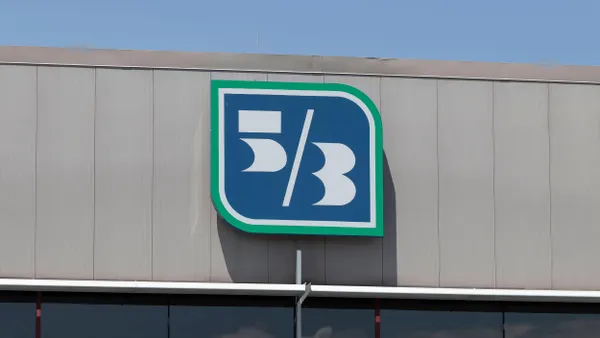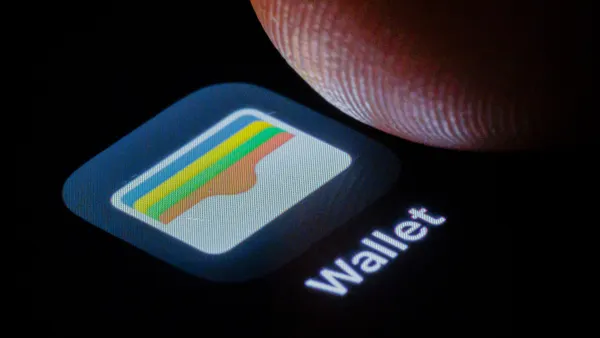Dive Brief:
- Fiserv and MetaBank will be issuing Visa cards preloaded with coronavirus relief payments to Americans for whom the IRS has no bank account data, Bloomberg Law and Reuters reported, citing two people familiar with the matter.
-
The Treasury Department is scaling up an existing product — the U.S. Debit Card — that the companies offer through a government contract to distribute federal agency payments. It is unclear when the cards will be sent out. Standard implementation for the program takes between 60 and 90 days, according to the U.S. Debit Card website.
- A CFPB interpretive rule issued April 13 reclassifies the stimulus payment such that it is not considered a "government benefit" under the Electronic Fund Transfer Act, making the prepaid-card move possible.
Dive Insight:
The Treasury Department and the IRS had been looking for a faster, more secure way — rather than paper checks — to disburse stimulus money to Americans for whom the tax agency does not have direct-deposit information on record.
They weren't the only government entities looking to connect hard-to-reach consumers with stimulus money. Sen. Sherrod Brown, D-OH, introduced a bill last month that would require banks to maintain "digital dollar wallets," allowing unbanked consumers to access their coronavirus relief payments.
The IRS this month began depositing coronavirus relief payments of $1,200 — plus $500 for each child under age 17 — into the bank accounts of taxpayers who earn up to $75,000 a year; received a refund on their 2018 or 2019 taxes; and gave the agency direct-deposit access. Individuals who make up to $99,000, or couples who earn more than $198,000, get less. The payments were approved as part of a $2 trillion congressional relief package.
The federal government has delivered more than 130 million payments worth more than $207 billion, according to IRS figures released in a statement emailed Wednesday to Bloomberg Law. The agency expects to issue more than 150 million payments in total, potentially stretching through the end of summer or early fall.
Treasury indicated last week it was considering sending prepaid cards to hard-to-reach individuals. "We’re also going to be supplementing our capability and sending out prepaid debit cards so we can get the money out quickly to people," Treasury Secretary Steven Mnuchin said at a White House briefing April 21.
But the Electronic Fund Transfer Act prohibits government agencies from requiring consumers to establish accounts with a particular financial institution to receive a government benefit.
Fiserv and Visa declined a Reuters request for comment. MetaBank did not respond.
A Treasury spokesperson told Bloomberg Law on Tuesday that the department was actively exploring options for distributing the payments but didn’t give further details.













